With over 90 feature films to his credit, four with director Todd Haynes and 17 with the Coen Brothers, two Academy Award nominations for Best Original Score, three Golden Globe nominations, two Emmy nominations including one for Outstanding Music Composition for a Miniseries, Movie or a Special (Original Dramatic Score) for Mildred Pierce which also garnered him the Emmy, and the other nomination for Outstanding Original Main Title Theme Music for Mildred Pierce, plus a plethora of other accolades and awards for his always outstanding musical compositions and score, one would think that CARTER BURWELL has done it all. Guess what? He hasn’t. Until now.
This year marks Burwell’s leap into episodic television and not just with one series, but two, and both on streaming services – THE MORNING SHOW on AppleTV and SPACE FORCE on Netflix.
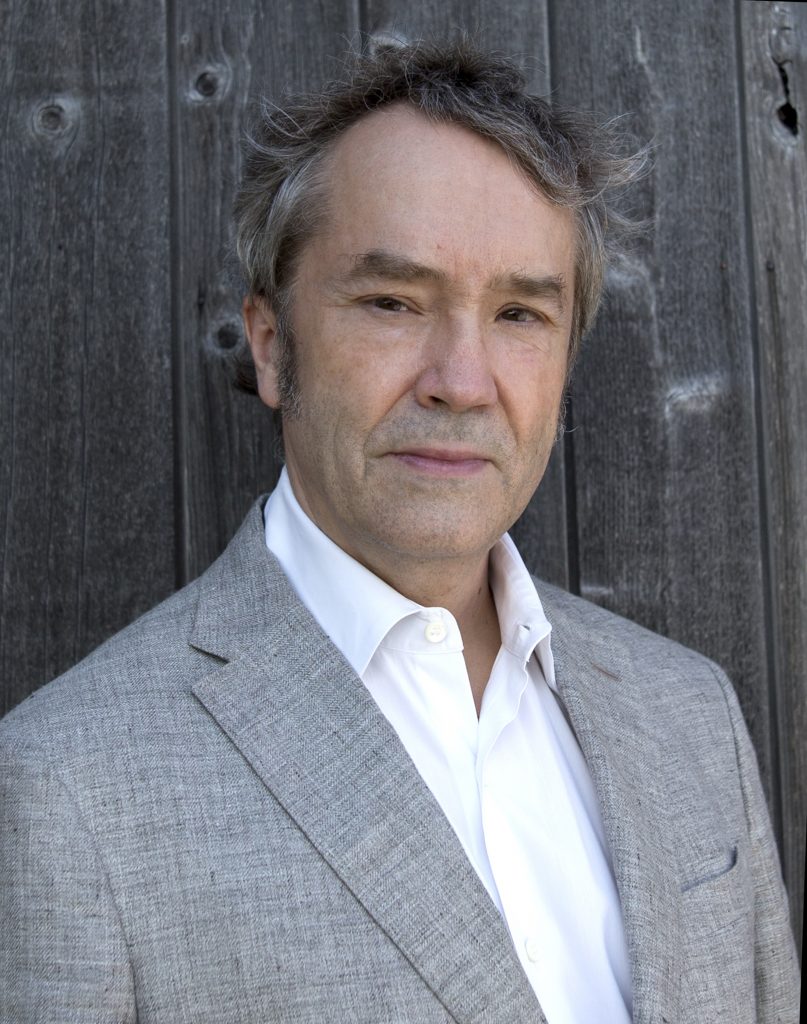
Starring Jennifer Aniston, Reese Witherspoon, and Steve Carell with a countless array of other notable talents like Mark Duplass, Billy Crudup, Gugu Mbatha-Raw, Cheyenne Jackson, Shari Belafonte, Nestor Carbonell, and Bel Powley, to name a few, THE MORNING SHOW is an hour-long drama that is essentially a “show within a show” exploring not only the dog-eat-dog world of morning news, but the behind-the-scenes lives of the people bringing those shows to the public, complete with the personal and professional lines that are crossed and the toll it can all take on an individual, a show, a network.
And then there’s SPACE FORCE. While everyone is well aware of the very real now sixth branch of the American Armed Forces and the sociopolitical turmoil surrounding it, leave it to Steve Carell and Greg Daniels to turn it into fun fodder for an episodic show. Starring Carell as General Mark Naird, his mission is to get Space Force up and running and put “boots on the moon” by 2024. Filled with wannabe and untrained astronauts, and political intervention and military intervention at every turn there is much to explore on not a comedic level, but a human level. Burwell’s music plays a large part in that and in defining the players and events, particularly Carell’s Naird and his scientific advisor and friend, John Malkovich’s Dr. Adrian Mallory.
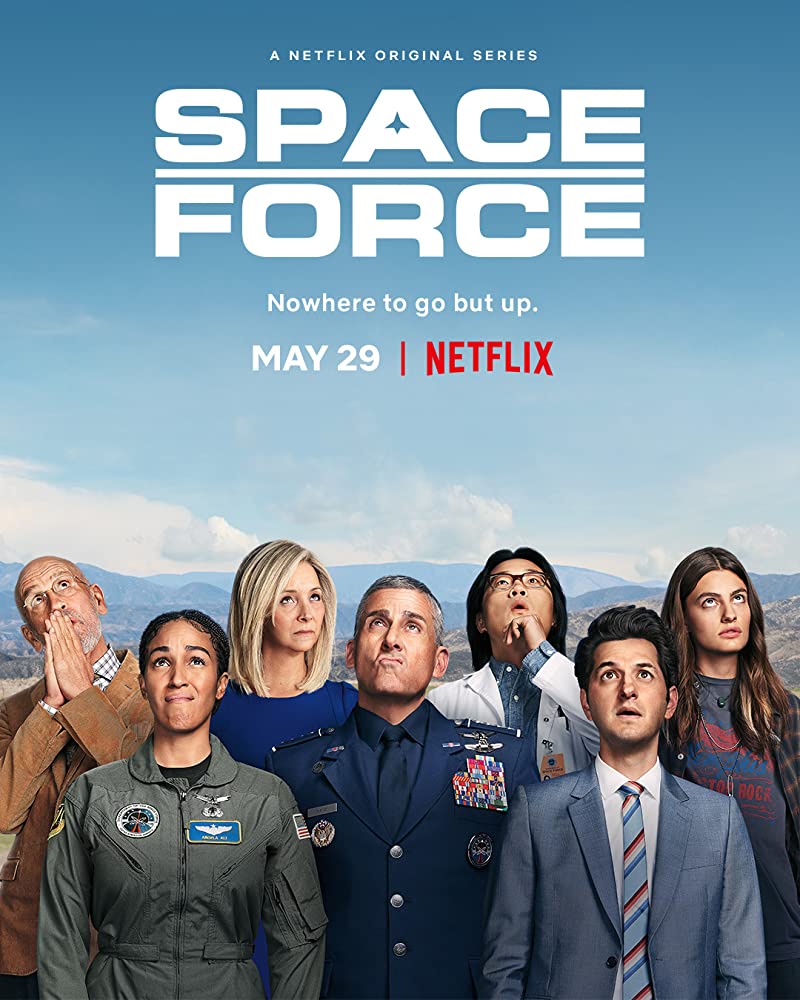
As different as night and day, both series present unique challenges for Burwell, most notably SPACE FORCE, due to its 30-minute comedic format which mandates musical brevity with identifiable motifs and tone in a very short amount of time. With THE MORNING SHOW, while an hour-long drama provides a bit more time for stylization and composition, challenges still remain with tone associated with the idea of a show-within-a show and “on air” versus behind the scenes and finding that balance along with identifiable themes for each character. CARTER BURWELL masters both challenges beautifully.
Submitting Episode 9, “It’s Good to Be Back on the Moon” from SPACE FORCE for Emmy consideration for Outstanding Music Composition for a Series (Original Dramatic Score), the episode is a highlight within Season One as it centers around the Space Force One rocket carrying the habitat and crew, successfully lifting off and heading towards the Moon but then being met with a unique problem as it comes time to land in the Sea of Tranquility. The Chinese are already there and demanding Space Force land its rocket elsewhere. This allows for some terrific comedy both visually and musically while showcasing the serious side of Carell’s General Naird with much needed decisiveness in a potentially explosive political situation; especially when the Chinese drive a heavy duty rover over the flag planted on the moon by Apollo 11.
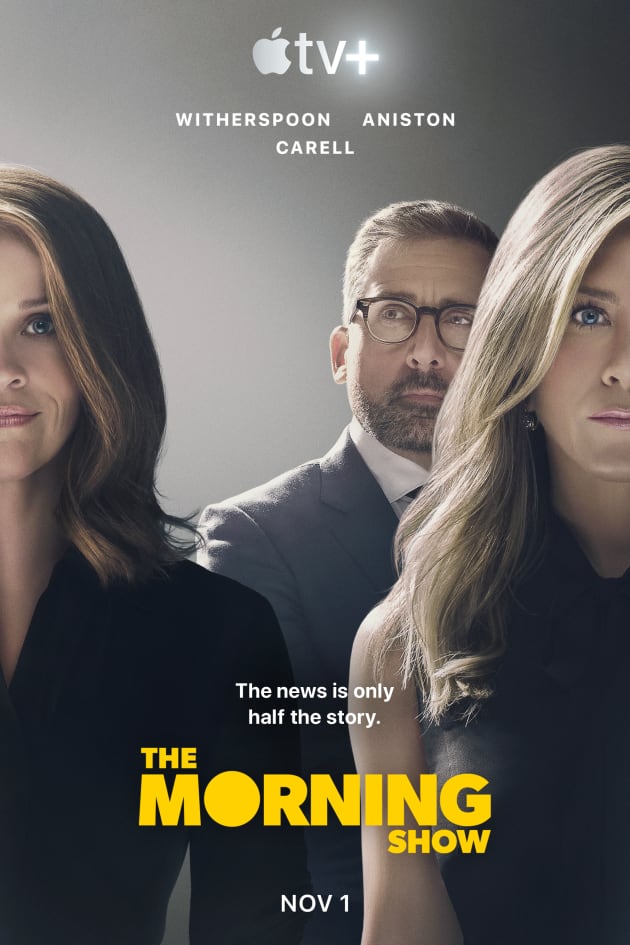
For THE MORNING SHOW, Burwell submits his work in Episode 10, “The Interview”, for Emmy consideration for Outstanding Music Composition for a Series (Original Dramatic Score). It is the season finale episode where emotional explosions, tragedies, toxicity, and subterfuge converge while providing powerful societal commentary on sexual harassment in the workplace and the #MeToo movement. But even in heavy drama, we find moments of inherent humor and that’s where Burwell’s music takes charge serving as a counter to the gravitas of the story, as well as giving us a few moments of laughter in a climactic boys-will-be-boys “tussle” between Mark Duplass’ character Chip and Carell’s Mitch.
I spoke at length with CARTER BURWELL this week talking about both series, the chosen episodes for Emmy consideration, and his process in approaching each one, particularly being a “freshman” in episodic television.
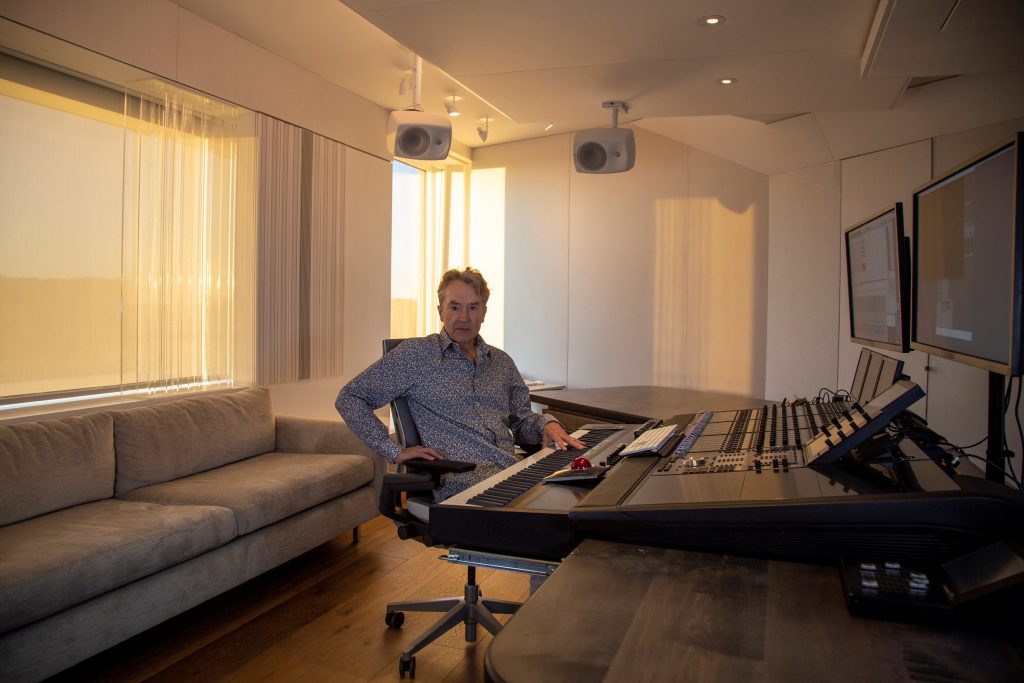
I’m so happy to be talking with you again, Carter. Of course, it’s not about a Todd Haynes movie this time, but this is so exciting to talk now about a TV series! And not just one series, but two! Who knew that Carter Burwell would make the jump.
Who knew? That’s right. Certainly not me. [laughing]
This entire venture is exciting and fascinating in and of itself. But why now? Why this leap into the Netflix and Apple TV arena?
Well, I guess it’s a couple of things. One is the trend that everyone sees that it’s harder to get indie movies into movie theaters and that’s usually where I’ve worked in the past. So there’s that. Everything’s moving to streamers, even the Coen Brothers last film was for Netflix. And also, just the scripts for THE MORNING SHOW, that was the first one that came to me, were interesting. And the opportunity to work on the big show for a new platform like Apple, it’s already a household name, but they’ve never done content before. That also just seemed like a very interesting place to be. And if I was ever going to try it, that would be a good time to do it. So that’s what drew me into it.

Now you’ve got these two very specific shows – THE MORNING SHOW and SPACE FORCE. They are as different as night and day! And your scoring is as different as night and day, too. But one common thread between them both, and one of the things you are known for and which we’ve talked about this in the past, is that the music does not get in the way of the story or the characters. Let me start with THE MORNING SHOW. Interesting is that you really allow the music to provide a lighter note that underscores the show within the show and the characters. Number one, the news itself is so dramatic. But number two, these characters’ lives are extremely dramatic, extremely topical, but then the music takes a step back. And I found that approach very interesting; that it lightens things up from the over-seriousness of what we’re seeing.
Yes. You said it exactly. One of the first questions I had when they called me was, “Why are you calling me?” [laughing] Because it doesn’t seem that I would obviously be the right person for that show. It’s, as you say, very dramatic, sometimes tragic, and could easily lend itself to melodrama. But that was actually what they said. They said, “We’re calling you because we want to avoid that. And we feel that there’s irony here, but maybe the audience is going to need help to see it. But there are bits of humor, even in the middle of all this angst, and the audience may need help to see that too.” So that’s right. That’s in fact why they called me. A lot of times the humor comes from the fact that, as you said, the characters take themselves too seriously. And that’s where the irony and the comedy come in. Yes, there are tragic things going on, but sometimes the characters build up these tragedies over things that are not really that important to anyone, except themselves. So, that’s exactly what we were trying to do.
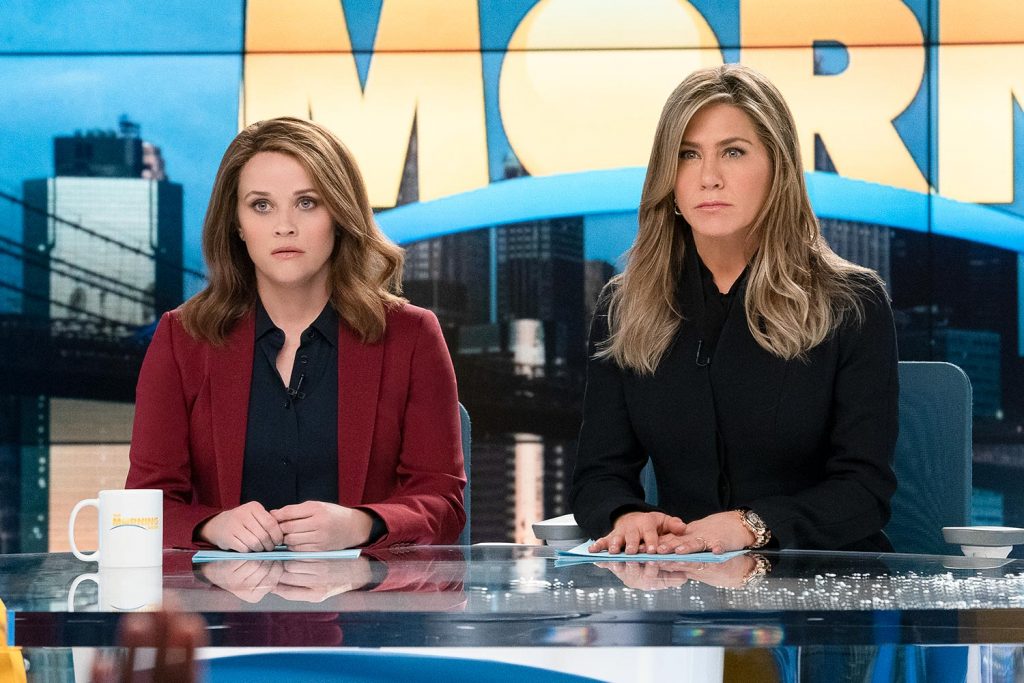
You watch the series over its 10 episode arc thus far, and you just want to slap some of them upside the head as you’re watching thinking, “Get over yourself. It’s only a morning show. This isn’t the end-all to end-all. You’re not Walter Cronkite.” And I appreciate that with the music, but what I also love is your choice of instrumentation. This is something that you always do so, so well when you compose, Carter. With the instrumentation here, you stay away almost completely from strings. And not just in the Season One Episode 10 finale, “The Interview”, which you submitted for Emmy consideration, but throughout the series. There is virtually little to no string use. You go heavier into a piano, percussion, brass. And I’m curious about that choice because typically with something like this, you’d expect to hear quite a bit of strings, maybe emphasizing or pulling back or finding comedy in something. B ut I’m not detecting a ton of string here.
Exactly. That was actually a policy decision that we all made very early on. We tried it on a couple of scenes and I said, “No, this is not the direction that we want to go” because the emotions are all well-served by the writing and by the actors and by the directing. If you then used the music to amplify those emotions, we saw that it became melodrama pretty quickly. So we just said, right from the start, “I don’t think there are going to be any strings in this show.” There were a couple of places where we need to draw you into someone’s internal experience in a way that the strings do help with. It happens a couple of times. I did it once at the very end of that Episode 10, the very end of the season, where they appear. And once at the very beginning of the series, when we were trying to bring you into Jennifer Aniston’s character, who is a tough character to get into emotionally; hard to sympathize with, empathize with. So we used them once, and I think in the first episode, to open her up a little bit. But that’s right, otherwise, it really was a policy decision. It’s not necessary and in fact, strings were going to push the whole show in the wrong direction.
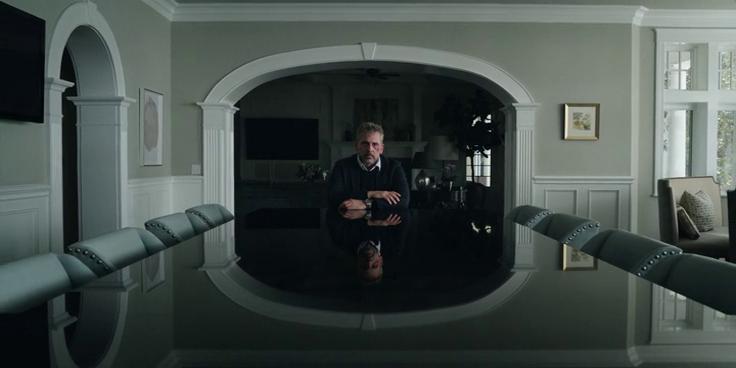
As I go through the whole episode, at about the 12:40 mark we’ve got piano, maybe some light woodwinds to buttress a tense moment, and that builds for about eight minutes. It pops in and out as we’re getting to Hannah and talking about the sexual harassment, and how they want to use it to their advantage as Chip is talking with Bradley. We get a percussive beat in there that I found particularly effective in this episode because it’s not only building tension and we feel it, but it’s also a pounding heartbeat with the hesitancy and self-questioning of “Do I do this? Do I do this? Am I going to get sent to the corner of the room? Am I going to screw up?” And that really aided the scene ao well, because it wasn’t so overly melodramatic that you were bogged down.
That’s right. Thank you. That was the goal. And especially with that last episode, we have to build tension through it so that the explosion at the end makes dramatic sense. So thank you for saying that. That was very much the goal, to keep building it, but in a way that we’re not giving up our policy of avoiding melodrama.
Were you using woodwinds in there, because it sure sounded like it?
Oh, yes. The clarinet is in there. So much of the score for the whole season has been bass, piano, and percussion. But occasionally when something needs to be a little more lyrical, there’s clarinet for instance. It comes up occasionally.
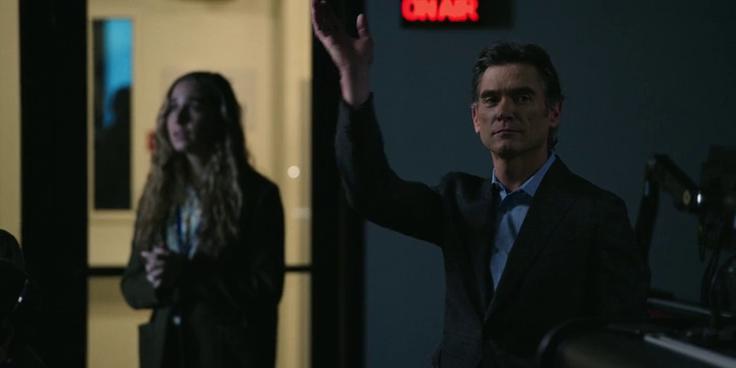
With this particular episode, and I’m really glad you’ve selected this one to submit for Emmy consideration because it really shows off a great range, but there’s that building, building, building, until we hit that 50-minute mark where Hannah’s dead, Claire is calling Bradley, and you’ve got a single note piano kicking in and visually they go into slow motion, no dialogue. The piano keeps continuing. Some bass percussion, a tiny bit comes in, but we keep hearing the piano as we’re watching what’s happening without hearing dialogue. We just know it, and it just works so, so well, until we get to the fight between Mark Duplass’s character of Chip Black and Billy Crudup’s character, Cory Ellison. And then you just go all out with allegro and it’s just phenomenal into that lobby fight.
I believe that’s Mr. Mozart, but that’s right. The idea there was, okay, the funny thing there would be to go hyper melodramatic. Two men incompetently punching each other, rolling around on the floor. So we let them have the melodrama and deny it to the female characters. It’s it kind of frivolously funny I hope, yeah.
I just love that. And anybody that knows Mark Duplass’s body of work over the years as an actor will get the humor even more because he is going to haplessly flail if he’s punching somebody out. So there’s an inherent note of comedy in there. So playing against that is so good. But then when we have the big on-air explosion, the piano is so haunting and so beautiful, Carter. I just absolutely love that as it builds and builds and builds.
It’s actually one of my favorite pieces in the whole season.
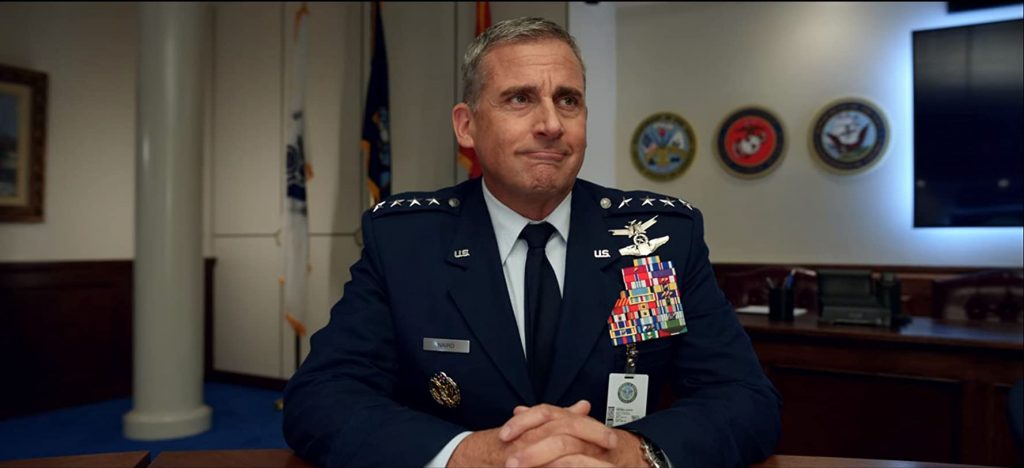
Just stunning. And then I turned my attention over to SPACE FORCE. I just think the music is fabulous. It feels a little lighter in terms of the amount of time that the music is present within the confines of a half-hour comedy. But again, I am curious as to the thought process behind this? What I’m feeling and hearing is a lot of percussion. I hear some snare drums in there. You’ve got full orchestra, the big sweeping swells that we expect in a Roland Emmerich Independence Day, or moments just shy of full-on John Philip Sousa. You really are capturing man’s aspirations and dreams with Steve Carell’s character, General Naird, and the music that supports him. So tell me what your thoughts were in creating this nod to patriotism and man’s inspirations.
Well, it was on my very first call with Greg Daniels, I think before I was even assigned to do it. He’d shown me the first episode and I said, “Well, I do feel like Carell’s character is not just a comedic character.” The writers and Carell himself were making an effort to depict him as a real human being with an inner life and family that he cares about an also, as someone who takes his space force seriously. It’s sometimes hard for us as the audience to take it seriously, but he takes it seriously. And that’s where a lot of the comedy comes from, derived from his efforts to actually, truly, get the rockets off the ground, get people to the moon, even though he’s Steve Carell. By playing that serious, by playing those hopes and aspirations seriously, it might help the comedy but also allow us to really enjoy when the rockets are taking off. So I pitched that idea – something like Aaron Copeland-esque, Americana, patriotism, but also because it is a military milieu, relying on the brass quite a bit. So that’s probably where the Sousa sound comes from. It’s this full brass section playing most of the score and then when it’s not that, when it’s something lighter, he’s just running around, which he does a lot, running around the campus of Space Force, and that’s where the snare drums and marching drumline is used which I think helps lighten things a little bit and keeps it moving.
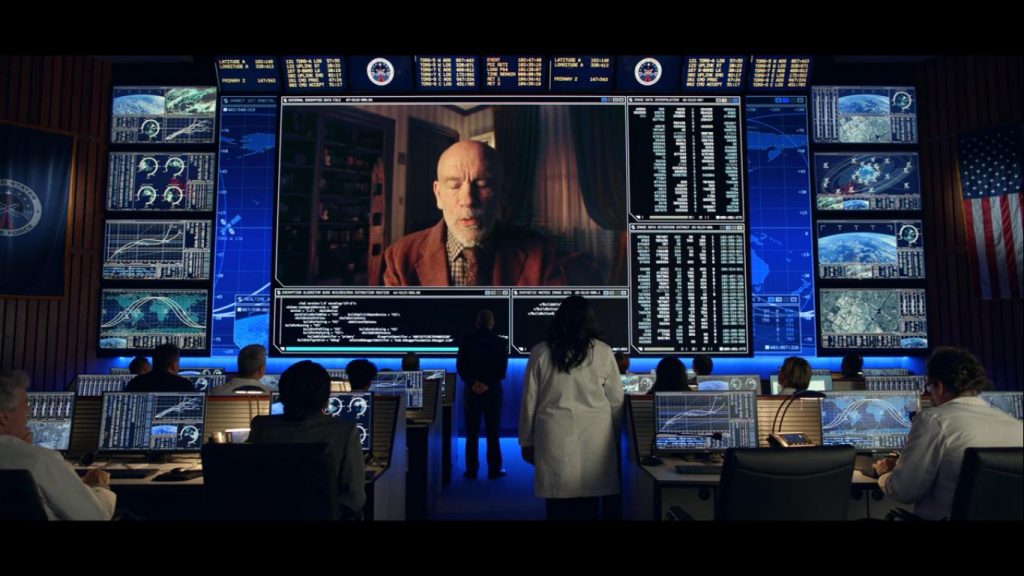
Oh, it’s fantastic! And especially once he makes that big decision, that he’s going to forge ahead with landing in the Sea of Tranquility, even though China is there and saying stay away. He finally has made a definitive decision here, and then you really get the brass and the snare drum. But while there’s also some tension over the idea that he’s going to fly in the face of China saying, “No, we already have something there. You can’t be there.”, you also add a little bit of whimsy in the tempo that you’re bringing in. And I detected that in a couple of instances. I love that whimsy and it really corresponds visually once we see the imagery from the moon and China’s running over Neil Armstrong and Buzz Aldrin’s flag. It’s such a beautiful blend there. Of course, as we’re in space, when we’re finally landing, we’re up there, you have a slight swell of music, and it’s very light, it’s very ethereal, it’s actually very sweet. It’s really more in the melodic tones of what I’m used to hearing from you.
That’s why I like this episode. It covers a lot of territory. There’s a little bit of joy and awe when you’re in space and there’s, as you say, all the tension building up to the decision they have to make about where to land. and your doubts about whether Carell’s really pulled all of this off. Then that dark note, that sinister note at the end. Yeah, I like that because there’s a lot of musical territory. It was fun to write.
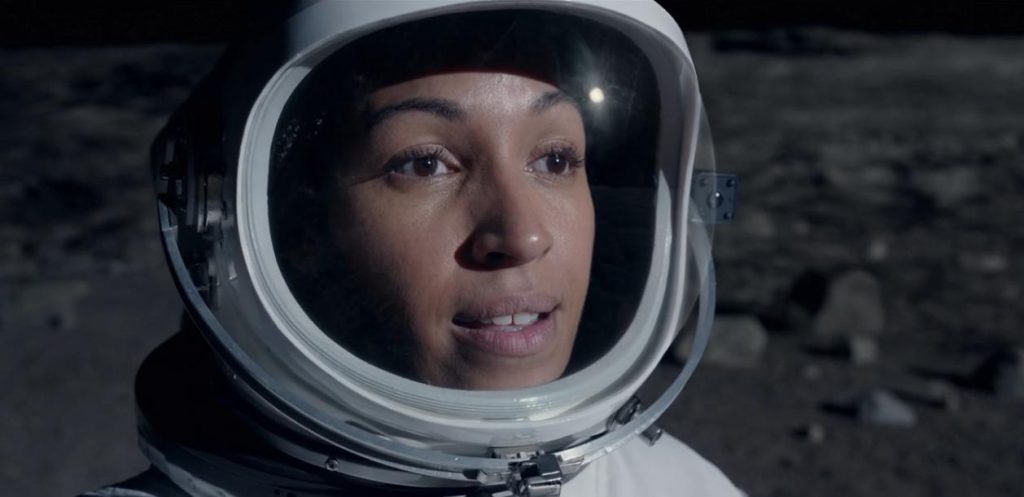
I’m curious, Carter, because of your work in cinema and so much of your scoring is very melodic, very identifiable, you’re not coming in with just tiny little snippets as much as you do in television, does that affect your approach to how you’re writing for television now?
Yes, and I have to tell you, honestly, I’m still learning. I’ve only done two seasons of episodic television, THE MORNING SHOW and the other is SPACE FORCE, but it’s how to sometimes hold back. I’ve got 10 seconds to say something, but often that’s not enough time to develop anything that’s really musical. And especially in SPACE FORCE, so much of that show, because it is a half-hour comedy, is made up of five seconds here and 12 seconds there. And learning how to do that is different than with film. The films that I work on, and that’s mostly feature films, the music is one, two, three, four minutes long, or sometimes more where you have an opportunity to really make a real musical statement with development in it. I’m still figuring out how to hold back in that. And yeah, as I say, I’m still learning, but that is the real difference, certainly between the half-hour comedy and feature film.
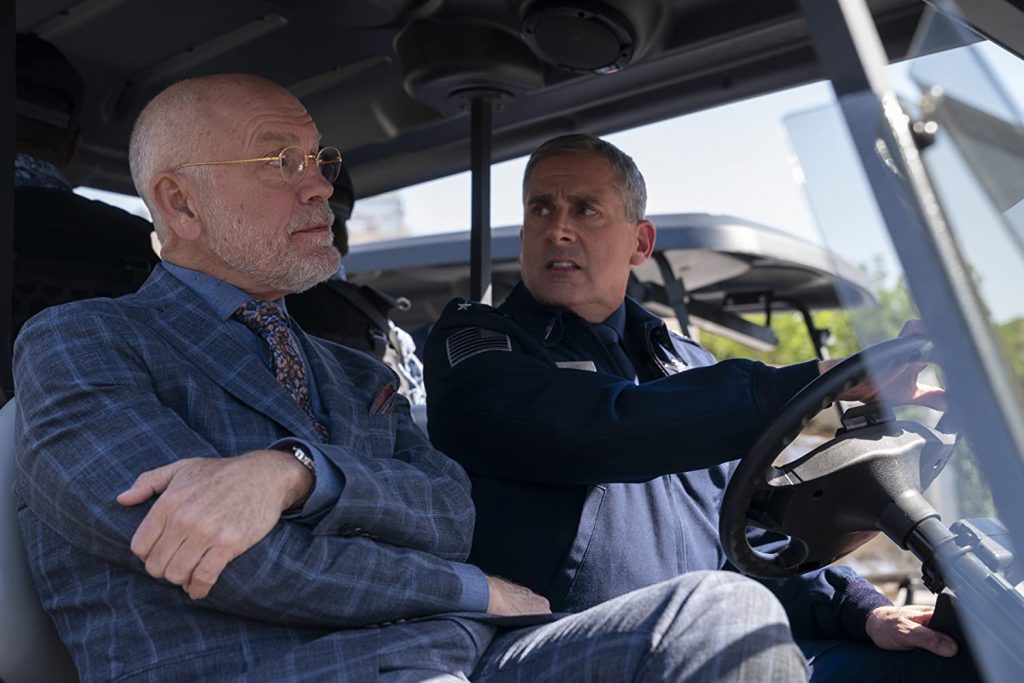
Going as far back as some of your earlier films like Mystery Alaska, music is such a huge part of that film, but it’s very recognizable, very identifiable. And as you said, there are passages that are several minutes long. And then we get into something such as Carol or Wonderstruck, or even Goodbye, Christopher Robin, and again, very identifiable in passages. So when I first heard that you were doing television, when you were doing episodics, I thought, “This could be interesting. Challenging for Carter, but interesting.”
Well, it’s challenging for me, I have to say. But that’s one of the reasons why I did want to do it also is just that, it is a new thing. And I’m aware that there’s a lot to learn, I’m still learning it. But I do enjoy a challenge and I’d be the first one to admit, I haven’t completely figured it all out. But yeah, it is in fact pretty different. I agree.
Now, correct me if I’m wrong, but I’m not detecting the typical number of musical motifs for characters. I’m not picking up any real distinctive motifs for each character in these series. Is that correct?
There are some. I can explain some. For instance in SPACE FORCE, we very pointedly gave John Malkovich’s character a harpsichord, but he’s the only one with sound. We’d established Carell’s character in the first couple of episodes, Malkovich’s character really comes into his own in the third episode. And Greg was saying, “Okay, if Steve’s character is brass band, what would be the exact opposite of a brass band? to make it clear that these two characters have completely different backgrounds, personalities”, and we settled on harpsichord. So, there is a very distinct playing of those two characters. These shows have dozens of characters though. But in terms of the leads, it’s pretty clear there. And also in THE MORNING SHOW, the three leads, Carell, Aniston and Reese, they do actually have their own themes and their own sounds. Jennifer is largely piano. Reese is more guitar. Steve Carell is more of the upright bass. It’s not always completely clear. You see a lot of times there are other characters on screen, so it might not be as clear as it would be in a film. But they in fact do in fact get their own palette of sounds and themes.
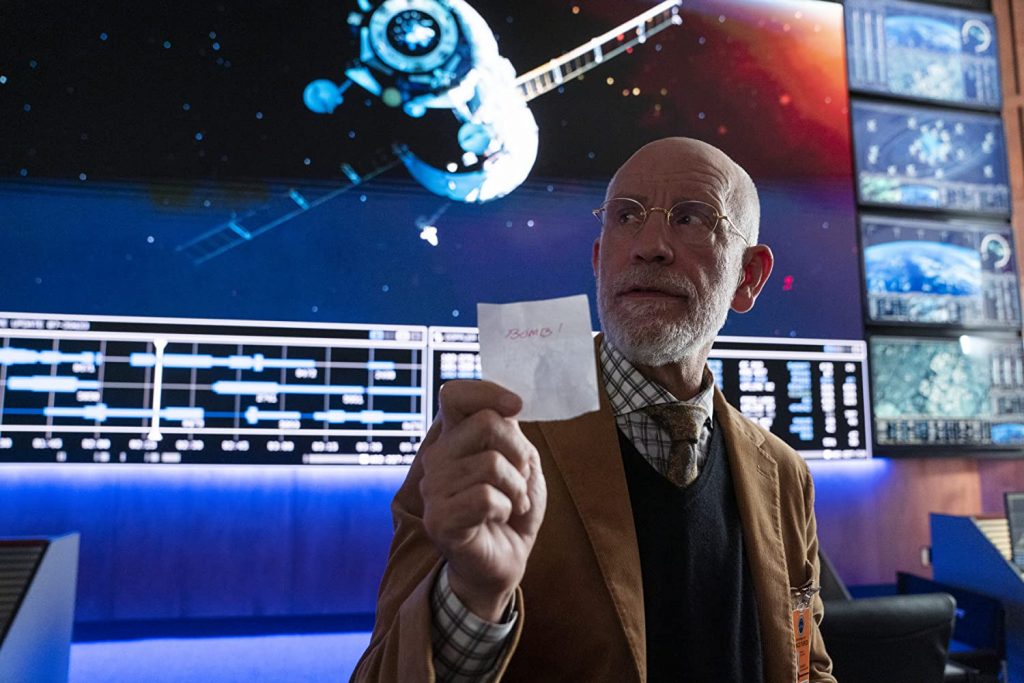
Well, I’m glad I wasn’t imagining it when I thought I heard harpsichord in SPACE FORCE. Actually, a harpsichord does kind of fit John Malkovich.
No, you didn’t imagine it. [laughing] Harpsichord does kind of fit him. It turned out that it was a harder sell than I thought it would be. I don’t know who, but apparently there were people who really, really, really hated the sound. And I guess, if you’re not really into Baroque music, in the 21st century, it’s an uncommon sound. I had a really had a hard time with it, but eventually, I was able to sell. I’m glad, it is very distinct.
Are you going to be scoring for the next season for each of these? Or is everything in flux now because of this pandemic?
Well, the plan was that I was going to score for the next season of tHE MORNING SHOW, and I think they had shot a couple of episodes. That’s my understanding. They sent me some of the scripts, but then of course, everything went on hold and I have no idea when it will pick up again or what will happen. Will they change some of the scripts because everything has been happening in the world, or will I even be the person who’s scoring it? I really have no idea. So I can’t provide any information. I know nothing.
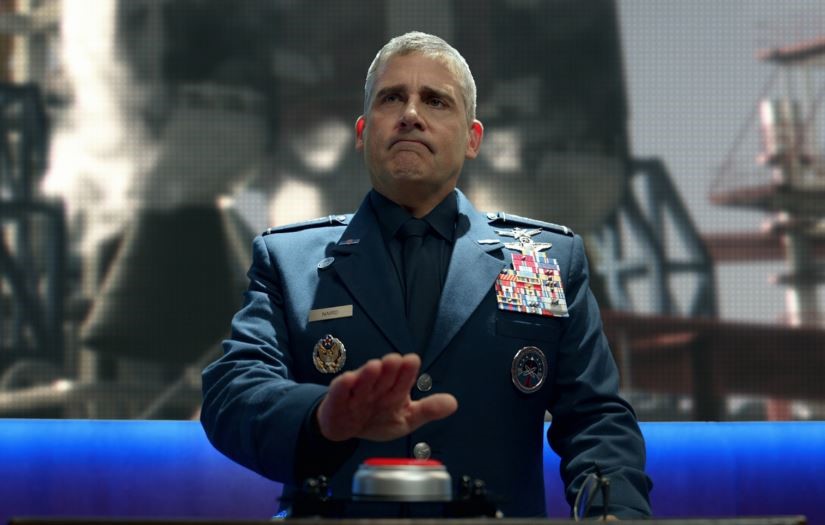
One last thing before I let you go, Carter. What impressed me about this is the fact that you were able to use full orchestra in a television series, especially with SPACE FORCE. Was that a surprise to you? Or how exciting is that when you get to play with all those tools in the toolbox?
I do that pretty regularly in feature films, but you’re right. It’s a great joy and privilege to be able to do that. And I love conducting orchestra. It’s really the fun part of the job. But I was dubious whether Netflix would be interested in doing an orchestral music for their half-hour comedy [SPACE FORCE], but amazingly they stepped up to the plate and it was a really nice surprise. And I think in any other situation, other than where we are right now, with the intense competition between the streaming platforms, it probably wouldn’t have happened. But they’re really willing to pay for amazing production values and things like that. It was great. It was a wonderful surprise.
That really caught my eye, or hear, that you’re using a full orchestra here. This is not a situation of sitting off in a corner and everything is electronic and you’ve got two people handling it. So I was really surprised to see that for a half-hour episodic.
I know, I know! There were times when we were recording it when I would say to whoever else in the room, “It really doesn’t sound like a half-hour comedy.”
Carter, all I can say is that I love the music in both. But I think I am particularly partial to your scoring of SPACE FORCE because of the greater variety. And that brass and percussion and that full orchestra, very patriotic. You hear that music in SPACE FORCE and it feels patriotic. It feels hopeful. It feels like man’s aspirations and dreams.
It really does.
by debbie elias, exclusive interview 07/07/2020












